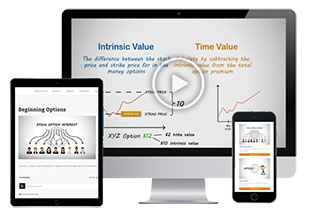The Wall Street analysts’ earnings season and their estimates’ perceived importance are a pointless exercise with little value to retail investors…
Long ago, investment banks started offering services to large trading clients by hiring analysts to cover large public companies. The analysts’ roles expanded over the years, publishing detailed reports, issuing buy, hold, and sell ratings, and setting price targets for the companies they cover.
These companies CEOs realized that they should cooperate with these Wall Street analysts because they had established relationships with big-money investors for the same banks that could raise money for their companies when they needed funding.
Basically, analysts serve as matchmakers between CEOs and wealthy clients.
Who Benefits?
Retail investors are getting little benefit from this game. Financial analysis often takes a backseat, and the ritual developed out of thin air. The quarterly earnings ritual then spun out of control. As part of the back-and-forth relationship, companies provide Wall Street analysts with earnings guidance.
This information is about the future and not entirely worthless. But legendary investor Warren Buffett considers this process ridiculous and refuses to play along.
Wall Street analysts decide to make their estimates, and media outlets and data aggregators consolidate the various analysts’ estimates into a “consensus.” During “earnings season,” these media outlets compare the reported results from companies with the consensus estimates.
This nonsense has evolved for decades, but things really got going in the early 2000s when the current financial-disclosure regulations came out, and financial TV became complacent. Now, all the media outlets just care about who beat and who missed.
Almost nothing important happens with quarterly earnings. However, we somehow convinced ourselves that the financial world is different and that these earning calls are of huge importance. This nonsense can cause substantial moves in the market, and some of the so-called experts focus on one of the least-favorite accounting metrics in the world, which is earnings per share (EPS).
EPS is a company’s net income divided by the number of outstanding shares. Net income is the “bottom line” on the income statement. Most people assume it’s pretty important, and although it does have value, it can be used to misguide investors.
Warren Buffett even told his shareholders that net income “is not representative of the business at all.”
What Should Investors Focus On?
First, focus on a company’s long-term strategy and competitive advantages. Look for companies with strong management teams, a solid balance sheet, and a clear vision for the future.
Second, and most important, pay attention to a company’s free cash flow. This is the amount of cash a company generates after accounting for all its expenses, capital expenditures, and debt payments. Free cash flow better indicates a company’s financial health than EPS.
Third, keep an eye on a company’s valuation. Is the stock trading at a reasonable price relative to the company’s earnings and growth prospects? What about its competitors? Avoid overpaying for a company just because it “beat” analysts’ estimates for the quarter.
Finally, focus on your own investment goals and risk tolerance. Don’t get caught up in the short-term noise from the media and the quarterly earnings. Instead, build a portfolio of high-quality companies that are likely will perform well over the long run and use options to monetize the positions.
Wrap Up
The quarterly earnings circus is a pointless exercise in modern markets. It’s based on a fallacy that Wall Street analysts’ estimates are essential and that quarterly results indicate a company’s long-term prospects. As retail investors, we should focus on a company’s long-term outlook, free cash flow, valuation, and our own investment goals and risk tolerance.
By ignoring the noise, we can build a portfolio of high-quality companies that will perform well over the long run while collecting additional income by using options to complement our stock position.
If you want to learn more about how we combine stocks and options, so we make money from the appreciation of stock, while also and monetize our asset for additional income, click here for our free options trading course.







